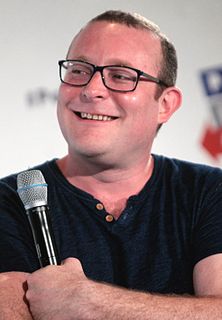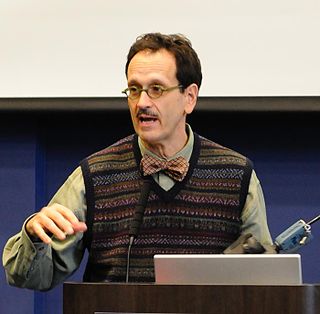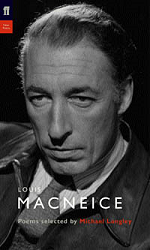A Quote by Tracy K. Smith
You want a poem to unsettle something. There's a deep and interesting kind of troubling that poems do, which is to say, 'This is what you think you're certain of, and I'm going to show you how that's not enough. There's something more that might be even more rewarding if you're willing to let go of what you already know.'
Related Quotes
A poem is like a person. The more you know someone, the more you realize there is always something more to know and understand. A final understanding could probably only begin upon permanent separation, or death. This is why we come back to certain poems, as we do to places or people, to experience and re-experience, to see ourselves for who we truly are, and to continue to be changed.
I think when you're really passionate about something, and maybe not every person is like this, but I think there's a large group that feels deep inside, I want something different, I want something more, I want to go on my own path. It's being comfortable being uncomfortable. Because to do that, you're going to have to jump outside of the comfort zone and it isn't going to be perfect. It's going to be scary. And to me, that's when great things happen.
I think that sense of surprise, that you don't know where something is going, or what's going to happen, even as you write, that you're making it up as you go along - that's important to me. It's not a question of shock or surprise in a gimmicky way. It's that as you read, you become more deeply into something and into what happens, and become more involved and engaged, you're learning something or you're appreciating something or seeing something differently - that's what's surprising.
A successful poem says what a poet wants to say, and more, with particular finality. The remarks he makes about his poems are incidental when the poem is good, or embarrassing or absurd when it is bad and he is not permitted to say how the good poem is good, and may never know how the bad poem is bad. It is better to write about other people's poetry.
It's not the norm when creators have any protections with regards to creative control. And so it took some time, I think, for the strip to gain enough popularity where I had enough leverage to come in and say, "It has to be done in a certain way or it's not going to be done at all," and then have people willing to put up with that who were ultimately paying for it. You know, for them to be willing to kind of concede those kind of things. It just takes time, you know?
You kind of notice what's going on in your body, and you can kind of feel a certain tightening, or fear, which is something that, as an artist, I've kind of befriended. I can pretty much count on it for anything that I engage in - that thing like, "Am I going to be able to pull this off?" Well, what am I gonna do with this feeling? The more nervous you get, the more worried you get about it. So you pay attention to what you might need.
I hate to say it because I think people are risk averse these days more than ever. Before they even pick up the phone, they know what the picture's going to be. So there's a certain comfort in that, a certain security that they can lay out the cover of the magazine and kind of know what it's going to be.
I think that poetry is an act of celebration, that anytime you're writing a poem, it means that you're celebrating something, even if it's a sad poem, if it's an angry poem, a political poem or anything at all. The fact that you're taking the time and energy to pick up this thing and hold it to the light, and say, "Let's take some time to consider this," means that you've deemed it worthy enough to spend time on - which, in my opinion, is celebrating.
I want to cultivate a deep sense of gratitude, of groundedness, of enough, even while I'm longing for something more. The longing and the gratitude, both. I'm practicing believing that God knows more than I know, that he sees what I can't, that he's weaving a future I can't even imagine from where I sit this morning.
I know that in a poem, even when the speaker is speaking from the poet's experience, there's always something that's borrowed, some authority that sits outside of the poet that the poem has claimed. There's a dramatic pitch that makes the speaker capable of saying something more courageous or stranger or simply other than what the poet would be able to say.
In cinema people are always walking into something and saying this is who I am, what I want, and how I'm going to get it and we don't in life - particularly not in public situations. People might know your first name, not your last name, they don't know what you do, and you're not going to offer it up. So if you start there and you realize this is a much more normal presentation in a film then you would ordinarily have; you know that there is a big life behind what everyone presents and that I think is super interesting.






































